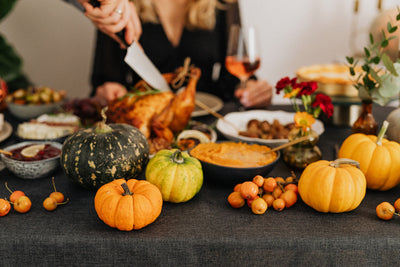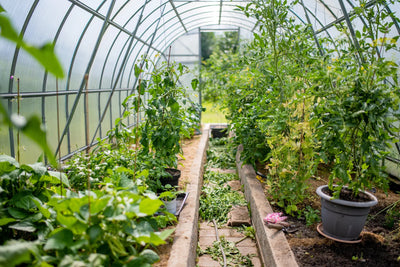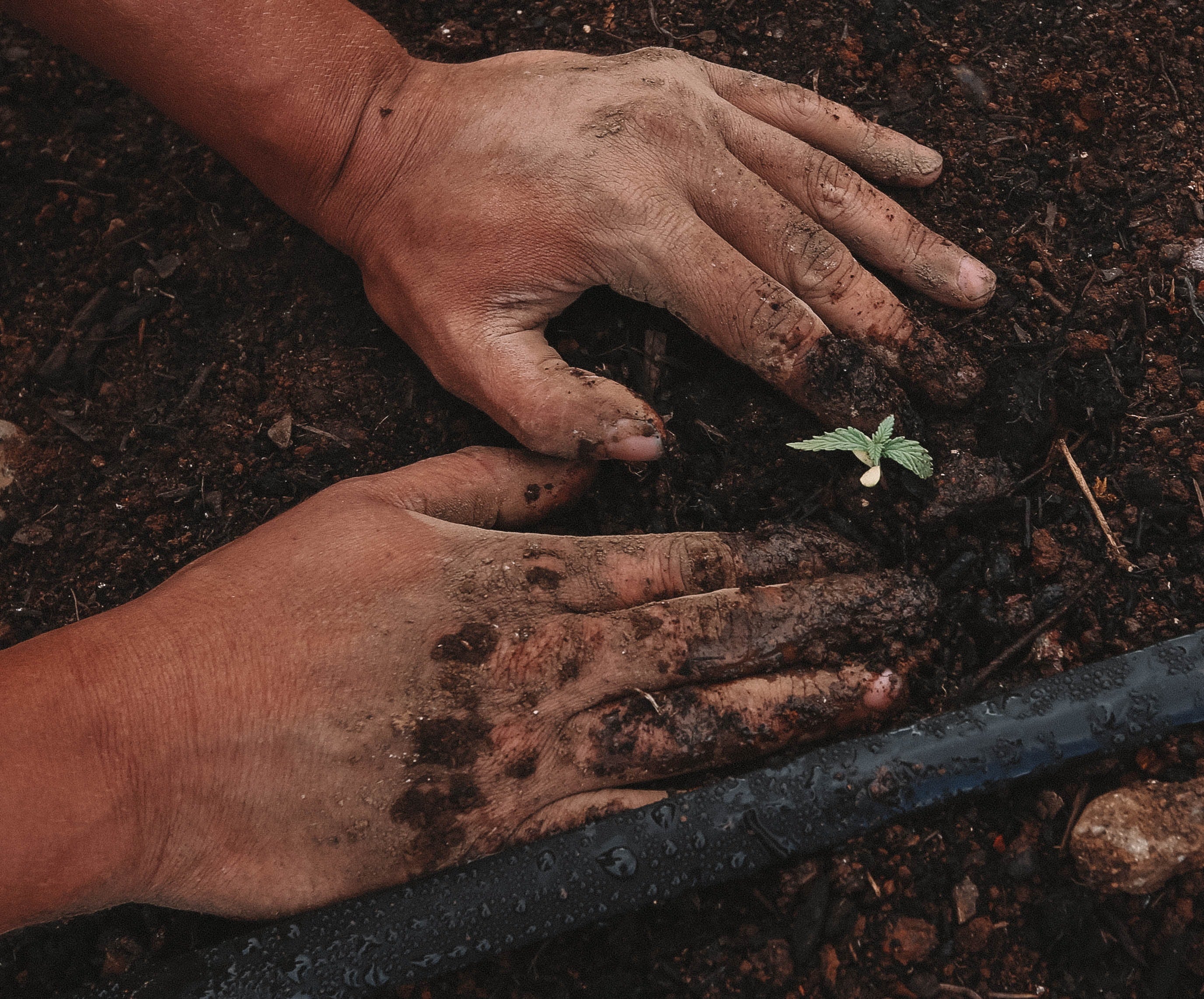In today’s world of modern agriculture, sustainability is a buzzword we hear often. But when it comes to gardening, true sustainability starts with something fundamental: seeds. Specifically, heirloom seeds are one of the most valuable resources for anyone serious about sustainable gardening. But what exactly makes heirloom seeds so special, and why should they be a staple in every gardener’s toolkit? Let's dive into the power of heirloom seeds and why they’re vital for sustainable gardening.
What Are Heirloom Seeds?
To understand the importance of heirloom seeds, it helps to know what they are. Simply put, heirloom seeds are seeds that have been passed down through generations of gardeners, usually for at least 50 years. Unlike hybrid or genetically modified (GM) seeds, heirloom seeds come from open-pollinated plants, which means they’re naturally pollinated by insects, birds, or wind. They haven’t been manipulated in a lab, and their genetic makeup remains pure.
The Unique Benefits of Heirloom Seeds
Heirloom seeds offer a range of benefits that modern hybrid or GM seeds simply cannot match. Here are some of the most compelling reasons why heirloom seeds are vital for sustainable gardening:
1. Genetic Diversity
One of the greatest strengths of heirloom seeds is their contribution to genetic diversity. In an era where many crops are grown from hybrid seeds created for commercial farming, genetic diversity is declining. Heirloom seeds help preserve the biodiversity of plants by maintaining strains that might otherwise disappear.
Having diverse plant genetics is essential for resilience. Heirloom plants are better equipped to adapt to different environments, weather conditions, and pests, reducing the need for artificial interventions like chemical pesticides or fertilizers.
2. Seed Saving for Future Crops
Heirloom seeds can be saved and replanted season after season, which is a crucial component of sustainable gardening. When you grow plants from heirloom seeds, you can harvest the seeds at the end of the season and store them for the next year. This isn’t possible with hybrid or GM seeds because they often don’t produce true-to-type plants in subsequent generations.
By saving heirloom seeds, gardeners ensure they have a continuous, self-sustaining supply of plants, saving money and reducing reliance on commercial seed companies.

3. Superior Flavor and Nutrition
There’s a reason why many heirloom varieties are prized in farmers' markets and gourmet kitchens. Heirloom vegetables and fruits are often more flavorful than their hybrid counterparts, which are bred for size, uniformity, and ability to survive transport, rather than taste.
In addition to superior flavor, heirloom plants can offer higher nutritional content. Many modern crops have been bred for yield at the expense of nutrition, whereas heirlooms retain the rich nutrient profiles of their ancestors. This makes heirloom varieties a healthier choice for both your garden and your table.
4. Environmental Benefits
Since heirloom plants tend to be hardier and more resilient, they often require fewer inputs like synthetic fertilizers or pesticides. This makes them a great option for organic gardening and helps reduce the environmental impact of growing food.
Additionally, heirloom plants support local ecosystems by providing habitats and food sources for pollinators like bees, birds, and butterflies. The natural, open-pollination process encourages a thriving, biodiverse garden that works in harmony with nature.
Why Heirloom Seeds Matter for Sustainable Gardening
Sustainable gardening is about working with nature rather than against it. When you choose heirloom seeds, you’re embracing a gardening practice that promotes long-term environmental health. Here’s why heirloom seeds play such an essential role in sustainable gardening:
1. Supporting Local Ecosystems
Heirloom seeds are typically adapted to the specific regions in which they’ve been cultivated. By planting heirloom seeds that have grown in your local area for generations, you’re helping maintain a symbiotic relationship between your plants and the local environment.
These plants are more likely to thrive without excessive interventions and support the local food web, which includes soil microbes, insects, and wildlife.
2. Reducing Dependence on Big Agriculture
One of the pillars of sustainability is independence from large-scale commercial systems. Modern agriculture is heavily dependent on a few major seed companies that control the market. By using heirloom seeds, gardeners take a step towards self-sufficiency and reduce their reliance on these corporate entities.
This independence isn’t just empowering for individuals; it’s a necessary move for the future of food security. If more people grow heirloom seeds and save them for future generations, we create a decentralized seed system that can withstand global challenges like climate change, crop disease, or economic instability.

How to Get Started with Heirloom Seeds
Are you ready to start using heirloom seeds in your sustainable garden? Here’s a quick guide to help you get started:
1. Choose the Right Seeds for Your Climate
The first step is selecting heirloom seeds that are suited to your local climate. Many heirloom seed companies provide information about the regions where each variety thrives, so you can pick seeds that will grow well in your area.
If you’re unsure, it’s a good idea to reach out to local gardening groups or seed exchanges, where you can get advice and even trade heirloom seeds with other gardeners in your region.
2. Start Small
If you’re new to heirloom gardening, start with a few varieties that are known to be easy to grow. Tomatoes, beans, and lettuce are excellent beginner crops, as many heirloom varieties of these plants are vigorous and resilient.
3. Practice Seed Saving
Once you’ve successfully grown your heirloom crops, learn how to save seeds for future planting. Seed saving is an essential skill for sustainable gardening, and with heirlooms, it’s a practice that can help keep your garden thriving year after year.
When saving seeds, make sure they come from healthy, vigorous plants that show desirable traits like disease resistance, good flavor, or high yield.
4. Share the Wealth
Heirloom seeds are made for sharing! Get involved in local seed swaps or online seed exchanges to help preserve heirloom varieties and spread the benefits of these seeds to other gardeners. The more we grow, share, and save heirloom seeds, the more we contribute to a sustainable future for gardening.
Invest in Your Survival Garden for Self-Sustainability with Seed Armory
Looking to secure your family’s future with sustainable gardening? Seed Armory's Heirloom Seed Bundles are your answer! Packed with 100% non-GMO, American-sourced seeds, these survival-grade collections are designed to help you cultivate a resilient and self-sufficient garden. Choose from pre-made bundles like the Rapid Grow Vault or build your own with up to 50 heirloom seed varieties. Whether you’re prepping for emergencies or growing your own food year-round, these seeds are vital for sustainable success. Invest in your garden’s future today!
Check out Seed Armory's heirloom seed bundles here.
The Future of Gardening Is Heirloom
The power of heirloom seeds lies in their ability to promote sustainability, preserve biodiversity, and provide us with nutrient-rich, flavorful produce. By incorporating heirloom seeds into your gardening routine, you’re not only investing in your garden’s success but also contributing to a more resilient and self-sufficient food system.
Whether you’re an experienced gardener or just starting, heirloom seeds offer a meaningful way to make your garden part of a sustainable future. Embrace the history, flavor, and environmental benefits that heirloom seeds provide, and you’ll be well on your way to a thriving, sustainable garden for years to come.





